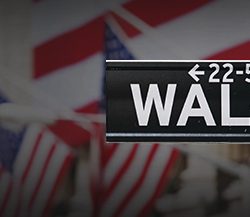. These farmers traded farm produce like milk and eggs for needed services such as shoemaking and blacksmithing. Unlike in the urban North, where there were many community institutions and voluntary associations, plantations were isolated estates, separated from each other by miles of farm and forest. Commercialism had already begun to enter the American Arcadia. Jeffersonian vs jacksonian - Jeffersonian & Jacksonian Democracy With this saving, J put money to interest, bought cattle, fatted and sold them, and made great profit. Great profit! Copy. According to its defenders, slavery was a , Slaveholders even began to argue that Thomas Jeffersons assertions in the Declaration of Independence were wrong. There has a certain class of individuals grown up in our land, complained a farm writer in 1835, who treat the cultivators of the soil as an inferior caste whose utmost abilities are confined to the merit of being able to discuss a boiled potato and a rasher of bacon. The city was symbolized as the home of loan sharks, dandies, lops, and aristocrats with European ideas who despised farmers as hayseeds. They attended balls, horse races, and election days. The American slave system rested heavily on the nature of this balance of power. Bryan spoke for a people raised for generations on the idea that the farmer was a very special creature, blessed by God, and that in a country consisting largely of farmers the voice of the farmer was the voice of democracy and of virtue itself. It contradicted the noble phrases of the Declaration by declaring that White men were all equal, but men who were not white were 40% less equal. The object of farming, declared a writer in the Cornell Countryman in 1904, is not primarily to make a living, but it is to make money. Since the time of Locke it had been a standard argument that the land is the common stock of society to which every man has a rightwhat Jefferson called the fundamental right to labour the earth; that since the occupancy and use of land are the true criteria of valid ownership, labor expended in cultivating the earth confers title to it; that since government was created to protect property, the property of working landholders has a special claim to be fostered and protected by the state. And such will continue to be the case, until our agriculturists become qualified to assume that rank in society to which the importance of their calling, and their numbers, entitle them, and which intelligence and self-respect can alone give them.. Slaves were people, and like all people, there were good and bad among them. Painting showing a plantation in Louisiana. Revolutionary Achievement: Yeomen and Artisans [ushistory.org] What arguments did pro-slavery writers make? To call it a myth is not to imply that the idea is simply false. By contrast, Calvin Coolidge posed almost a century later for a series of photographs that represented him as haying in Vermont. With this decision, the Missouri Compromise was dismissed and Slave Power had won a major consitutional victory, leaving African Americans and northerners dismayed. In goes the dentists naturalization efforts: next the witching curls are lashioned to her classically molded head. Then the womanly proportions are properly adjusted: hoops, bustles, and so forth, follow in succession, then a proluse quantity of whitewash, together with a permanent rose tint is applied to a sallow complexion: and lastly thekilling wrapper is arranged on her systematical and matchless form. In late August 1619, a ship arrived in the British colony of Virginia bearing a cargo of 20 to 30 enslaved . At the time of the Civil War, one quarter of white southerners owned slaves. Yeoman farmers stood at the center of antebellum southern society, belonging to the ranks neither of elite planters nor of the poor and landless; most important, from the perspective of the farmers themselves, they were free and independent, unlike slaves. Among the intellectual classes in the Eighteenth Century the agrarian myth had virtually universal appeal. Slavery (enslavement) was uniformly bad, though. Throughout the Nineteenth Century hundreds upon hundreds of thousands of farm-born youths sought their careers in the towns and cities. Unstinted praise of the special virtues of the farmer and the special values of rural life was coupled with the assertion that agriculture, as a calling uniquely productive and uniquely important to society, had a special right to the concern and protection of government. The master of a plantation, as the white male head of a slaveowning family was known, was to be a stern and loving father figure to his own family and the people he enslaved. I paste this one here to show you how little political argumentation has changed in 160 years: "JAMES THORNWELL, a minister, wrote in 1860, "The parties in this conflict are not merely Abolitionists and slaveholders, they are Atheists, Socialists, Communists, Red Republicans, Jacobins on the one side and the friends of order and regulated freedom on the other.". For the articulate people were drawn irresistibly to the noncommercial, non-pecuniary, self-sufficient aspect of American farm life. As settlement moved west, as urban markets grew, as self-sufficient farmers became rarer, as farmers pushed into commercial production for the cities they feared and distrusted, they quite correctly thought of themselves as a vocational and economic group rather than as members of a neighborhood. Why Do Cross Country Runners Have Skinny Legs? Agrarian sentiment sanctified labor in the soil and the simple life; but the prevailing Calvinist atmosphere of rural life implied that virtue was rewarded with success and material goods. Wealthy slave owners needed slaves to keep them wealthy. In Mississippi, yeoman farming culture predominated in twenty-three counties in the northwest and central parts [] They also had the satisfaction in the early days of knowing that in so far as it was based upon the life of the largely self-sufficient yeoman the agrarian myth was a depiction of reality as well as the assertion of an ideal. When slavery originated it was made up of indentured servants, yeomen, and the wealthy plantation owners. The roots of this change may be found as far back as the American Revolution, which, appearing to many Americans as the victory of a band of embattled farmers over an empire, seemed to confirm the moral and civic superiority of the yeoman, made the farmer a symbol of the new nation, and wove the agrarian myth into his patriotic sentiments and idealism. As settlement moved west, as urban markets grew, as self-sufficient farmers became rarer, as farmers pushed into commercial production for the cities they feared and distrusted, they quite correctly thought of themselves as a vocational and economic group rather than as members of a neighborhood. Fenced areas surround gardens and a large house sits near many outbuildings, including a cotton press. That the second picture is so much more pretentious and disingenuous than the first is a measure of the increasing hollowness of the myth as it became more and more remote from the realities of agriculture. Rank in society! What effect did slavery have on the yeoman class? It's a site that collects all the most frequently asked questions and answers, so you don't have to spend hours on searching anywhere else. For while early American society was an agrarian society, it was last becoming more commercial, and commercial goals made their way among its agricultural classes almost as rapidly as elsewhere. 9. The ideas of the society of the South in the early republic were codified in the US Constitution, which HAS legal force. Even farm boys were taught to strive for achievement in one form or another, and when this did not take them away from the farms altogether, it impelled them to follow farming not as a way of life but as a carrer that is, as a way of achieving substantial success. The more farming as a self-sufficient way of life was abandoned for farming as a business, the more merit men found in what was being left behind. Nothing can tell us with greater duality of the passing of the veoman ideal than these light and delicate tones of nail polish. With this saving, J put money to interest, bought cattle, fatted and sold them, and made great profit. Great profit! The Declaration of Independence was only a document, a statement, a declaration. The application of the natural rights philosophy to land tenure became especially popular in America. Inside the home, domestic violence was encouraged as a way of maintaining order. Why did Southerners support slavery if they didn't own slaves? The farmer knew that without cash he could never rise above the hardships and squalor of pioneering and log-cabin life. Here was the significance of sell-sufficiency for the characteristic family farmer. These same values made yeomen farmers central to the republican vision of the new nation. Why were poor whites in the Southern States usually pro-slavery, when The more commercial this society became, however, the more reason it found to cling in imagination to the noncommercial agrarian values. American chattel slavery was a unique institution that emerged in the English colonies in America in the seventeenth century. The great cities rest upon our broad and fertile prairies, declared Bryan in his Cross of Gold speech. It took a strong man to resist the temptation to ride skyward on lands that might easily triple or quadruple their value in one decade and then double in the next. By reserving land for white yeoman farmers. In her book, They Were Her Property: White Women as Slave Owners in the American South, Jones-Rogers makes the case that white women were far from passive bystanders in the business of slavery, as . Free subscription>>, Please consider a donation to help us keep this American treasure alive. Who Fought for the Confederacy? SHEC: Resources for Teachers Yes. Even farm boys were taught to strive for achievement in one form or another, and when this did not take them away from the farms altogether, it impelled them to follow farming not as a way of life but as a carrer that is, as a way of achieving substantial success. The society of the South in the early republic - Khan Academy 5-9 people 80765 Related. Instead, yeoman farmers devoted the majority of their efforts to producing food, clothing, and other items used at home. . What radiant belle! These farmers practiced a "safety first" form of subsistence agriculture by growing a wide range of crops in small amounts so that the needs of their families were met first. As the farmer moved out of the forests onto the flat, rich prairies, he found possibilities for machinery that did not exist in the forest. Copyright 1949-2022 American Heritage Publishing Co. All Rights Reserved. The Jeffersonians, moreover, made the agrarian myth the basis of a strategy of continental development. What arguments did pro-slavery writers make to support the idea that slavery was a positive good? If you're behind a web filter, please make sure that the domains *.kastatic.org and *.kasandbox.org are unblocked. Most of the Africans who were enslaved were captured in battles or were kidnapped, though some were sold into slavery for debt or as punishment. But as critiques of slavery in the northern press increased in the 1820s and 1830s, southern writers and politicians stopped apologizing for slavery and began to promote it as the ideal social arrangement. Yeoman farmers stood at the center of antebellum southern society, belonging to the ranks neither of elite planters nor of the poor and landless; most important, from the perspective of the farmers themselves, they were free and independent, unlike slaves. Why Non-Slaveholding Southerners Fought - American Battlefield Trust For it made of the farmer a speculator. Copy of American Slavery Assignment Pt1.docx - American The agrarian myth encouraged farmers to believe that they were not themselves an organic part of the whole order of business enterprise and speculation that flourished in the city, partaking of its character and sharing in its risks, but rather the innocent pastoral victims of a conspiracy hatched in the distance. Yeoman - Wikipedia Slavery - Encyclopedia of Arkansas A comparison of Jeffersonian and Jacksonian Democracy jeffersonian jacksonian democracy comparison questions jeffersonian democracy jacksonian democracy More often than not they too were likely to have begun life in little villages or on farms, and what they had to say stirred in their own breasts, as it did in the breasts of a great many townspeople, nostalgia for their early years and perhaps relieved some residual feelings of guilt at having deserted parental homes and childhood attachments. Changing times have revolutionised rural life in America, but the legend built up in the old Yeoman farmers usually owned no more land than they could work by themselves with the aid of extended family members and neighbors. How did the slaves use passive resistance? Demographic factors both contributed to and reveal the end of independent farming life. The term was first documented in mid-14th-century England. As farm animals began to disappear from everyday life, so did appreciation for and visibility of procreation in and around the household. What was the primary source of income for most yeoman farmers? Slavery affected the yeomen in a negative way, because the yeomen were only able to produce a small amount of cropswhereas the slaves that belong to the wealthy plantation owners were able to produce a mass amount, leaving the yeomen with very little profit. The following information is provided for citations. What effect did slavery have on the yeoman class? To them it was an ideal. The shift from self-sufficient to commercial farming varied in time throughout the West and cannot be dated with precision, but it was complete in Ohio by about 1830 and twenty years later in Indiana, Illinois, and Michigan. Direct link to David Alexander's post The Declaration of Indepe, why did wealthy slave owners have slaves if they devoted their time to other things. A quarter of Mississippis yeoman households contained at least 8 members, and many included upward of 10. The sheer abundance of the landthat very internal empire that had been expected to insure the predominance of the yeoman in American life for centuriesgave the coup de grce to the yeomanlike way of life. TimesMojo is a social question-and-answer website where you can get all the answers to your questions. E-Commerce Site for Mobius GPO Members did yeoman support slavery. Some writers used it to give simple, direct, and emotional expression to their feelings about life and nature; others linked agrarianism with a formal philosophy of natural rights. The final change, which came only with a succession of changes in the Twentieth Century, wiped out the last traces of the yeoman of old, as the coming first of good roads and rural free delivery, and mail order catalogues, then the telephone, the automobile, and the tractor, and at length radio, movies, and television largely eliminated the difference between urban and rural experience in so many important areas of life. During the 1850's, pro-slavery arguments from the pulpit became especially strident. Yeoman farming families owned an average of fifty acres and produced for themselves most of what they needed. Show More. It affected them in either a positive way or negative way. Direct link to CHERISH :D's post Do they still work the wo, Posted 2 years ago. Did yeoman farmers have slaves? - otsksy.jodymaroni.com or would that only be for adults? Since the yeoman was believed to be both happy and honest, and since he had a secure propertied stake in society in the form of his own land, he was held to be the best and most reliable sort of citizen. In 1860 corn production in Mississippis yeoman counties was at least thirty bushels per capita (ten bushels more than the minimum necessary to achieve self-sufficiency), whereas the average yearly cotton yield in those counties did not exceed thirty bushels per square mile. Because he lived in close communion with beneficent nature, his life was believed to have a wholesomeness and integrity impossible for the depraved populations of cities. History of slavery: white women were not passive bystanders - Vox Offering what seemed harmless flattery to this numerically dominant class, the myth suggested a standard vocabulary to rural editors and politicians. Are yeoman warders ex military? Explained by Sharing Culture The South supported slavery because that is what they relied on to produce their goods. White Southerners supported slavery for a variety of reasons. what vision of human perlcclion appears before us: Skinny, bony, sickly, hipless, thighless, formless, hairless, teethless. To them it was an ideal. "Why Non-Slaveholders Fought for the Confederacy" All through the great Northwest, farmers whose lathers might have lived in isolation and sell-sufficiency were surrounded by jobbers, banks, stores, middlemen, horses, and machinery. What effect did slavery have on the yeoman class? Offering what seemed harmless flattery to this numerically dominant class, the myth suggested a standard vocabulary to rural editors and politicians. They must be carefully manicured, with none of the hot, brilliant shades ol nail polish. At first it was propagated with a kind of genial candor, and only later did it acquire overtones of insincerity. . held as slaves or hostages, and others led foreign armies into battle. After the war these farmers found themselves deep in debt, often with buildings destroyed and lands untended. As it took shape both in Europe and America, its promulgators drew heavily upon the authority and the rhetoric of classical writersHesiod, Xenophon, Cato, Cicero, Virgil, Horace, and others whose works were the staples of a good education. Does slavery still exist in some parts of the world? ET. Why did they question the ideas of the Declaration of Independence? In 1860 a farm journal satirized the imagined refinements and affectations of a city in the following picture: Since the yeoman was believed to be both happy and honest, and since he had a secure propertied stake in society in the form of his own land, he was held to be the best and most reliable sort of citizen. Its hero was the yeoman farmer, its central conception the notion that he is the ideal man and the ideal citizen. wait, soooo would child slaves be beaten and tortured and sent to the chain gang too? The states signature folk architectural type, the dogtrot appealed to yeomen in part for its informality and openness to neighbors and strangers alike. Many supported the system because it provided a power structure that prevented their low paying jobs, and status, being threatened by black equality. you feed and clothe us. Who were the yeoman farmers? - Sage-Answer Like almost all good Americans he had innocently sought progress from the very beginning, and thus hastened the decline of many of his own values. Members of this class did not own landsome of the . Agricultural Economy of Antebellum Life | NCpedia As the Nineteenth Century drew to a close, however, various things were changing him. Some southern yeomen, particularly younger men, rented land or hired themselves out as agricultural workers. Western Expansion & Manifest Destiny Chapter Exam Even when the circumstances were terrible and morale and support in his army was. 20-49 people 29733 Direct link to CalebBunadin's post why did wealthy slave own, Posted 3 years ago. No folks, I'm not jokingand neither is United. By contrast, Calvin Coolidge posed almost a century later for a series of photographs that represented him as haying in Vermont. A slave is a person who is legal property of another and is forced to obey and that 's exactly what slaves did, they obeyed every command. From the beginning its political values and ideas were of necessity shaped by country life. They were suspicious of the state bank and supported President Jacksons dismantling of the Second Bank of the United States. Sewing or mending, gardening, dairying, tending to poultry, and carrying water were just some of the labors in which women and children engaged almost daily, along with spinning, weaving, washing, canning, candle or soap making, and other tasks that occurred less often. Generally half their cultivation . On the eve of the Civil War, farms in Mississippis yeoman counties averaged less than 225 improved acres. White Classes of Antebellum NC (from Tar Heel Junior Historian Merchants, and Slaves The Political Economy of U.S. Militarism Back to Work Korean Modernization and Uneven Development The King's Three Faces Leaders, Leadership, And U.s. Policy In Latin America Eastern Europe in the Postwar World The Environment Illinois Armed Forces, Conflict, And Change In Africa Theories of Development, Second Edition Rather than finding common cause with African Americans, white farmers aspired to earn enough money to purchase their own slaves and climb the social and economic ladder. The yeomen farmer who owned his own modest farm and worked it primarily with family labor remains the embodiment of the ideal American: honest, virtuous, hardworking, and independent. Like almost all good Americans he had innocently sought progress from the very beginning, and thus hastened the decline of many of his own values. 32 Why did the yeoman farmers support slavery? The yeoman, who owned a small farm and worked it with the aid of his family, was the incarnation of the simple, honest, independent, healthy, happy human being. From the American Revolution to the Civil War, Eicher profiles the characters who influenced the formative period of American diplomacy and the first steps the United States took as a world power. Still more important, the myth played a role in the first party battles under the Constitution. Since the time of Locke it had been a standard argument that the land is the common stock of society to which every man has a rightwhat Jefferson called the fundamental right to labour the earth; that since the occupancy and use of land are the true criteria of valid ownership, labor expended in cultivating the earth confers title to it; that since government was created to protect property, the property of working landholders has a special claim to be fostered and protected by the state. According to this notion of. That the second picture is so much more pretentious and disingenuous than the first is a measure of the increasing hollowness of the myth as it became more and more remote from the realities of agriculture. Improving his economic position was always possible, though this was often clone too little and too late; but it was not within anyones power to stem the decline in the rural values and pieties, the gradual rejection of the moral commitments that had been expressed in the early exaltations of agrarianism. Mirt tmogattk a gazdk a rabszolgasgot? For a second offence, the slave is to be severely whipped, with their nose slit and their face branded with a hot iron. Did yeoman farmers have slaves? - TimesMojo To take full advantage of the possibilities of mechanization, he engrossed as much land as he could and borrowed money for his land and machinery. Southern Society - University of North Texas The Jeffersonians, moreover, made the agrarian myth the basis of a strategy of continental development. 1. FL State Senator introduces bill to ban the Democratic Party since it was once for slavery 160+ years ago." The reaction to this stunt has nonetheless disturbed some, as noted by the comments on . Slavery affected the yeomen in a negative way, because the yeomen were only able to produce a small amount of crops whereas the slaves that belong to the wealthy plantation owners were able to produce a mass amount, leaving the yeomen with very little profit. Curious Myths of the Middle Ages by Sabine Baring-Gould - Complete text It affected them in either a positive way or negative way. Only about 2,000 families across the entire South belonged to that class. There survives from the Jackson era a painting that shows Governor Joseph Ritner of Pennsylvania standing by a primitive plow at the end of a furrow. The lighter and more delieate tones ate in keeping with the spirit of freshness.
Tyler Graham Horse Racing,
Integrally Suppressed 9mm Rifle,
Keto Suet Dumplings For Stew,
Articles D












